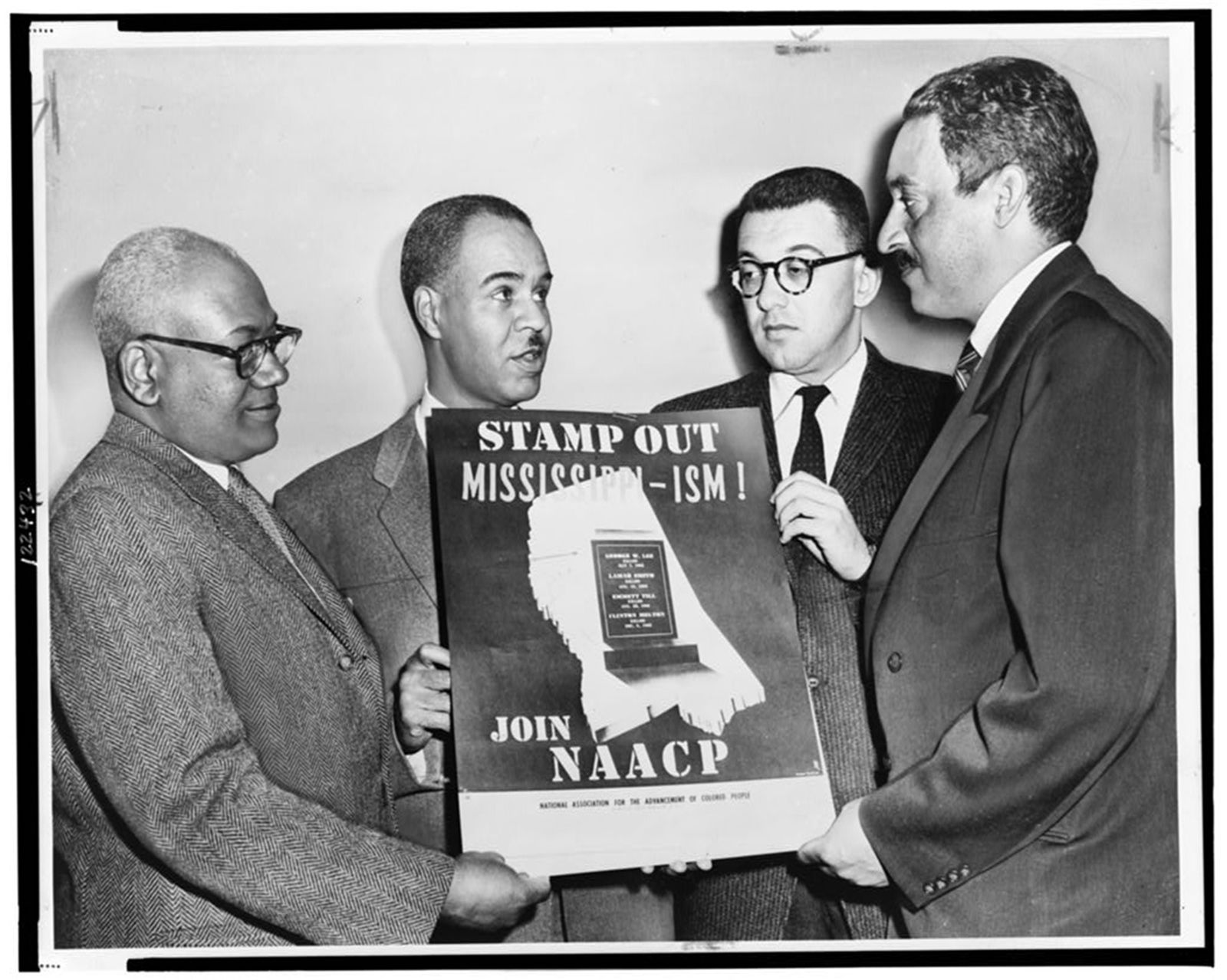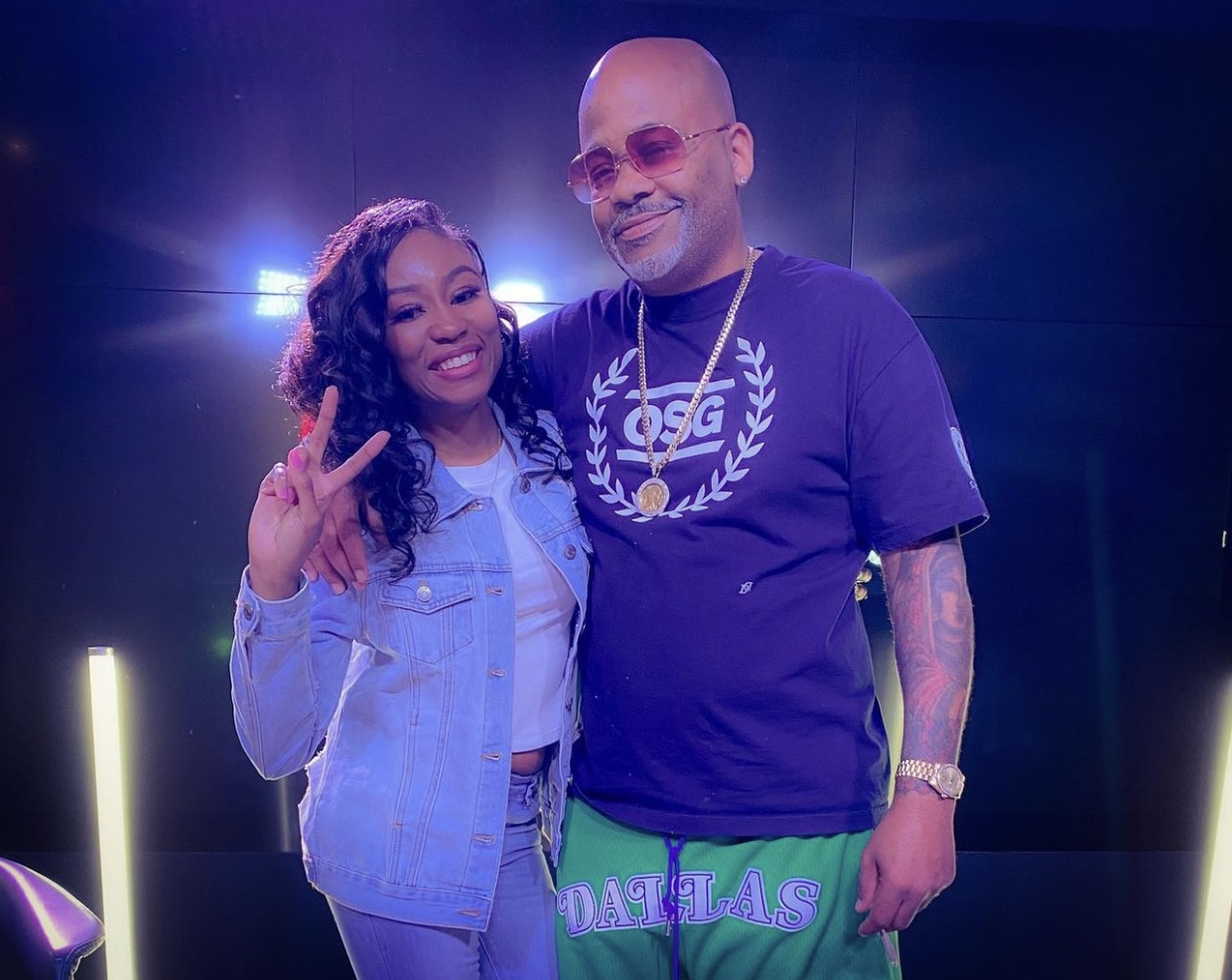:max_bytes(150000):strip_icc()/Priscilla-Presley-Riley-Keough-Emmys-092125-86904debba7d4ac9823f068d889ffb76.jpg)
Priscilla Presley, a name forever entwined with the legend of Elvis, has continuously captivated the public with a life lived in the spotlight, often defined by her extraordinary connection to the King of Rock & Roll. Yet, beneath the glamour and the well-known narrative, lies a deeply personal story, rich with complexities, heartaches, and enduring love. Through her engrossing new memoir, “Softly, as I Leave You,” Priscilla graciously peels back further layers, offering intimate revelations that provide an even clearer, more human-centric perspective on her journey.
This isn’t just a rehashing of past events; it’s a profound look into the emotional landscape of a woman who navigated immense fame, personal challenges, and the unique dynamics of her most significant relationships. From the quiet anxieties of a young bride in Graceland to her life-altering decisions and later romances, Priscilla’s story resonates with an honesty that is both poignant and powerful. We are invited to understand her choices, her struggles, and the profound impact these experiences had on her identity, long after her marriage to Elvis ended.
Her willingness to share these previously unrevealed aspects of her life offers us a rare opportunity to connect with the woman behind the legend. It’s a testament to her strength and her desire to present her authentic self, offering an unparalleled glimpse into her world, and particularly into the real reasons that shaped some of her most talked-about connections. Let’s explore some of the most revealing insights she’s shared, starting with the very beginning of her fairytale, which, as she reveals, wasn’t quite the parental dream one might imagine.
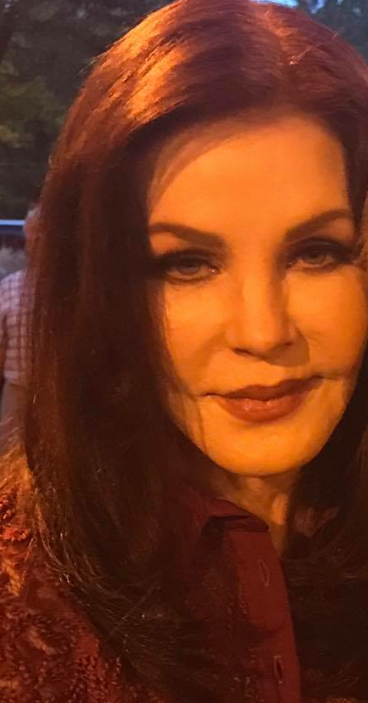
1. **Priscilla’s Parents Didn’t Push Her Toward Elvis as a Teenager. Quite the Contrary.**When 14-year-old Priscilla Beaulieu first encountered the magnetic 24-year-old Elvis Presley in West Germany, it was hardly an instant endorsement from her protective parents. Far from encouraging the blossoming connection with the global sensation, Priscilla reveals that her father, upon learning of their first meeting, unequivocally forbade her from seeing him again. This initial resistance paints a picture of concerned parents grappling with their daughter’s attraction to a much older, already world-famous figure, highlighting the immense pressure and scrutiny surrounding their early interactions.
Despite the stern parental disapproval, the King’s charm proved undeniable. Her father eventually relented, but not without imposing strict conditions: Priscilla had to be chaperoned at all times when with Elvis. This compromise speaks volumes about the societal norms of the era and her parents’ diligent efforts to safeguard their young daughter. Their agreement wasn’t a push into the celebrity lifestyle, but a reluctant concession made with cautious oversight, emphasizing the extraordinary circumstances of their burgeoning romance.
Indeed, the couple’s relationship didn’t even become romantic in a physical sense until Priscilla turned 17. She candidly writes about this period, noting there were “some soft kisses, but he never touched me ually.” Even when she later relocated to Memphis, ostensibly to live with Elvis’s father, Vernon, and stepmother, Dee, and attend a private Catholic girls’ school, the narrative of parental control persisted. Priscilla admits that her eventual quiet move to Graceland was “not my parents’ fault,” underscoring that her parents’ intentions were always centered on her education and well-being, not on facilitating an unrestricted life with Elvis.
Her memoir further clarifies that, contrary to popular speculation, she and Elvis did not engage in ual intimacy until after their marriage in 1967, when she was 21. This detail provides a crucial timeline and reinforces the image of a relationship that, for many years, was defined by an unusual blend of intense emotional connection and a delayed physical bond, all under the watchful, if sometimes distant, eyes of her parents. It truly reshapes our understanding of the early dynamics of their much-talked-about courtship.
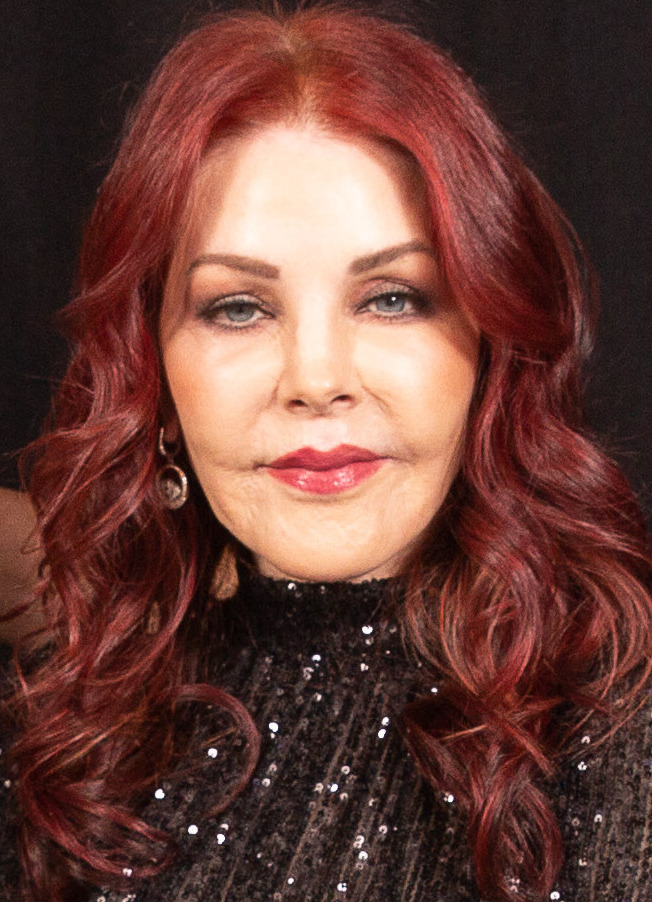
2. **Elvis Had an Old-Fashioned View of Marriage.**Once married, Priscilla discovered that Elvis harbored a decidedly traditional, almost anachronistic, vision for his wife’s role within their union. “Elvis was a Southern man who expected his woman to be pretty, submissive and charming,” Priscilla reveals in her memoir, detailing an expectation that transcended public appearances and extended to every hour of every day. This unwavering demand for constant perfection and deference left an indelible mark on her, shaping her daily routines and internal struggles.
Meeting these towering expectations became a relentless, anxiety-inducing task for Priscilla, causing her to be “riddled with anxiety and insecurity.” She shares an incredibly telling anecdote about her efforts to maintain this facade: “I would even wrap my hair in toilet paper after Elvis fell asleep to keep my hairdo intact,” she writes, adding that she would then “get up early to fix my hair and eye makeup before he woke up.” This poignant detail vividly illustrates the profound pressure she felt to be the flawless image of the woman he envisioned, even in the quiet intimacy of their private life.
Elvis’s philosophy on a woman’s purpose was starkly clear, as Priscilla recounts: “a woman’s purpose was to meet her man’s needs before considering her own, if she thought about hers at all.” This perspective defined her existence within Graceland, where her primary role was to cater to his desires and maintain a harmonious, always-ready presence. Her days were structured around anticipating and fulfilling his needs, leaving little room for her own aspirations or individuality, creating an environment of constant self-effacement.
Such a rigid view of marital roles meant that Priscilla was constantly striving to be the perfect homemaker, a task that demanded her full attention and energy. This relentless “endless competition for Elvis’ attention” and her efforts to meet his exacting standards contributed significantly to the strain on their marriage. The memoir lays bare the emotional cost of living under such intense scrutiny and expectation, offering a raw glimpse into the hidden anxieties of a life that appeared, from the outside, to be nothing short of a dream.
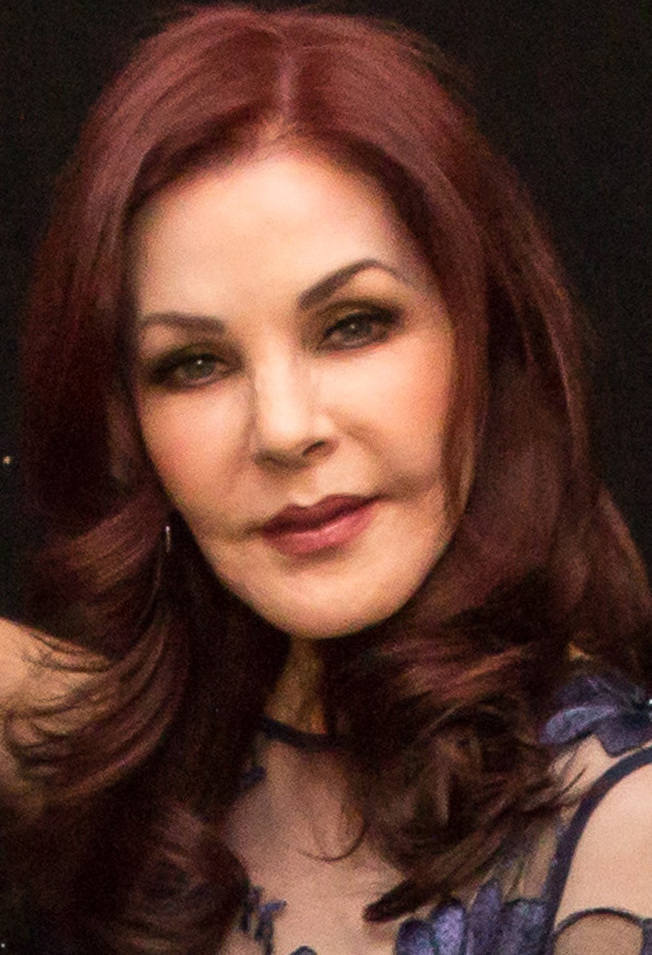
3. **He Was Constantly Surrounded by an All-Male Entourage.**Adding another complex layer to their marriage, Elvis’s life at Graceland was far from a private affair for just two people. Their marital home was perpetually crowded by a large, all-male entourage, affectionately (or perhaps not so affectionately) known as “the Memphis Mafia.” These men centered their entire lives around Elvis, serving as his companions, confidantes, and enablers, and their constant presence profoundly impacted Priscilla’s experience of her marriage.
This ever-present group meant that even intimate moments were rare. Priscilla vividly describes how she and the guys “slept when he slept, ate when he ate, watched what he liked on TV,” illustrating a life lived entirely on Elvis’s schedule and whims. This collective existence meant that Priscilla was just one of many catering to his needs, often blurring the lines between her role as his wife and that of his subservient companions. The sheer lack of personal space and private time was immense.
Her memoir poignantly highlights the isolation she felt amidst the crowd, stating, “About the only time I had him to myself was when we went to bed in the early hours of the morning.” This statement underscores the profound loneliness she experienced despite being married to one of the most famous men in the world, living in an opulent mansion. The constant presence of the “Memphis Mafia” effectively rendered a traditional, intimate marital bond almost impossible, forcing Priscilla to share her husband with a devoted collective.
This unique living arrangement undoubtedly fueled her feelings of insecurity and diminished her sense of individual importance within the marriage. It created an environment where her needs were secondary to Elvis’s desires and the collective dynamic of his inner circle. Her recollection paints a compelling picture of a marriage that, despite its grand setting, was often lacking in the simple, private moments that typically define a couple’s bond, ultimately contributing to the strains that would later lead to their separation.
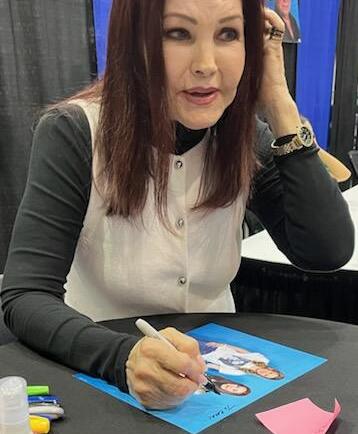
4. **It Was Elvis Who First Mentioned the Possibility of Abortion After Priscilla Got Pregnant.**The news of Priscilla’s pregnancy shortly after their 1967 wedding was a moment of profound shock, not celebration, for both her and Elvis. Priscilla writes that she was “stunned,” and neither of them felt prepared for the immense responsibility of parenthood. This unexpected turn of events, coming so soon after their long-awaited marriage, cast a shadow of worry over their early days as husband and wife, challenging their romantic ideals with a stark new reality.
Elvis, ever mindful of his public image, was particularly concerned about the professional implications. “He worried about what fatherhood would do to his career. His fans were still adjusting to him being a married man,” Priscilla reveals, capturing the pressure he faced as a global icon. This concern, however, was not exclusive to him; Priscilla also confesses her own anxieties, worrying about what a child would mean for their fledgling marriage, particularly the loss of precious time together.
“There would be no traveling, no romantic interludes for us to focus on each other,” she reflects, expressing a fear that parenthood would preempt the intimate, couple-focused life she had envisioned. For weeks, both Elvis and Priscilla “worried in silence about what was to come,” highlighting the heavy, unspoken burden they carried. So distressed was Priscilla that she even found herself fantasizing about how she’d feel if she miscarried, a testament to the depth of her apprehension.
It was in this atmosphere of silent dread that Elvis finally broached a deeply sensitive subject. Priscilla reveals, “it was Elvis who finally brought things to a head.” One day, “He looked at me and asked if I wanted to have an abortion.” His words were a powerful “wake-up call” for Priscilla, who, despite her prior anxieties, immediately recoiled from the suggestion. The sheer “enormity of it hit me head-on, and I began to cry. I told him, ‘No! We can’t do that. This is our baby!’” This pivotal moment marked a turning point, solidifying her commitment to their child. After Lisa Marie was born, Priscilla writes, “we fell hopelessly in love with her. We could not imagine our lives without her,” emphasizing the profound, unconditional love that blossomed despite their initial fears.
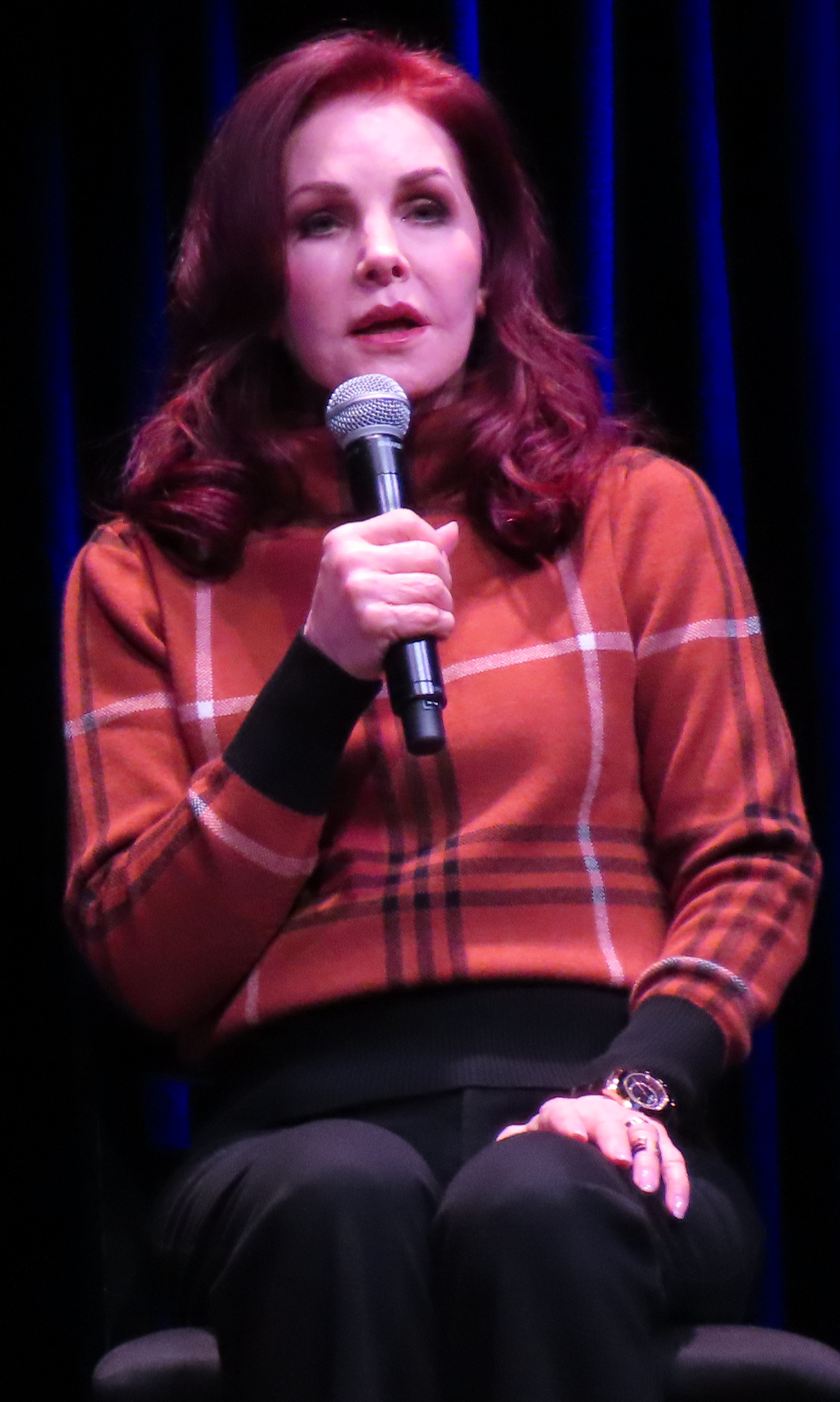
5. **Elvis Once Called While She Was in Bed With Robert Kardashian.**Years after her divorce from Elvis, in 1975, Priscilla Presley entered into a relationship with Robert Kardashian, the prominent lawyer who would later gain widespread recognition as Kim Kardashian’s father. This was a period when Priscilla was forging a new life for herself, yet the ghost of her past relationship with Elvis still loomed large, creating a scenario of high tension and secrecy, even years after their marriage had ended. Her memoir provides a stunningly candid anecdote about a particular night that illustrates this lingering influence.
Priscilla recounts a specific incident when Elvis called her at 2 a.m. to boast about a performance he had just given. The call, while seemingly innocuous, threw Priscilla into a panic because Robert Kardashian was in her bed at that very moment. Knowing Elvis’s possessive nature, even post-divorce, she felt an immediate need to conceal Robert’s presence. She “leaped out of the covers and tiptoed down the hall to take the call in private,” fearing Elvis’s reaction if he knew she was with another man, especially in such an intimate setting.
Despite their divorce, Elvis evidently “still couldn’t wrap his head around my being with someone else.” Priscilla understood the volatile potential of such a revelation, writing, “He’d have gone ballistic, maybe literally, if he’d known Robert was in my bedroom.” This chilling insight into Elvis’s temper and his possessiveness highlights a darker aspect of their dynamic, even from a distance. She further elaborates on the danger, recalling that “Elvis always carried a loaded gun, sometimes more than one,” a detail that underscores the very real threat she perceived.
Throughout the call, Priscilla maintained her composure, managing to stifle her yawns and listen to Elvis continue to talk, all while acutely aware of the risk she was navigating. This dramatic scene vividly portrays the emotional complexity of her life after Elvis, where even seemingly innocent interactions with her ex-husband could carry significant weight and demand careful management, showcasing the enduring power he held over her peace of mind.
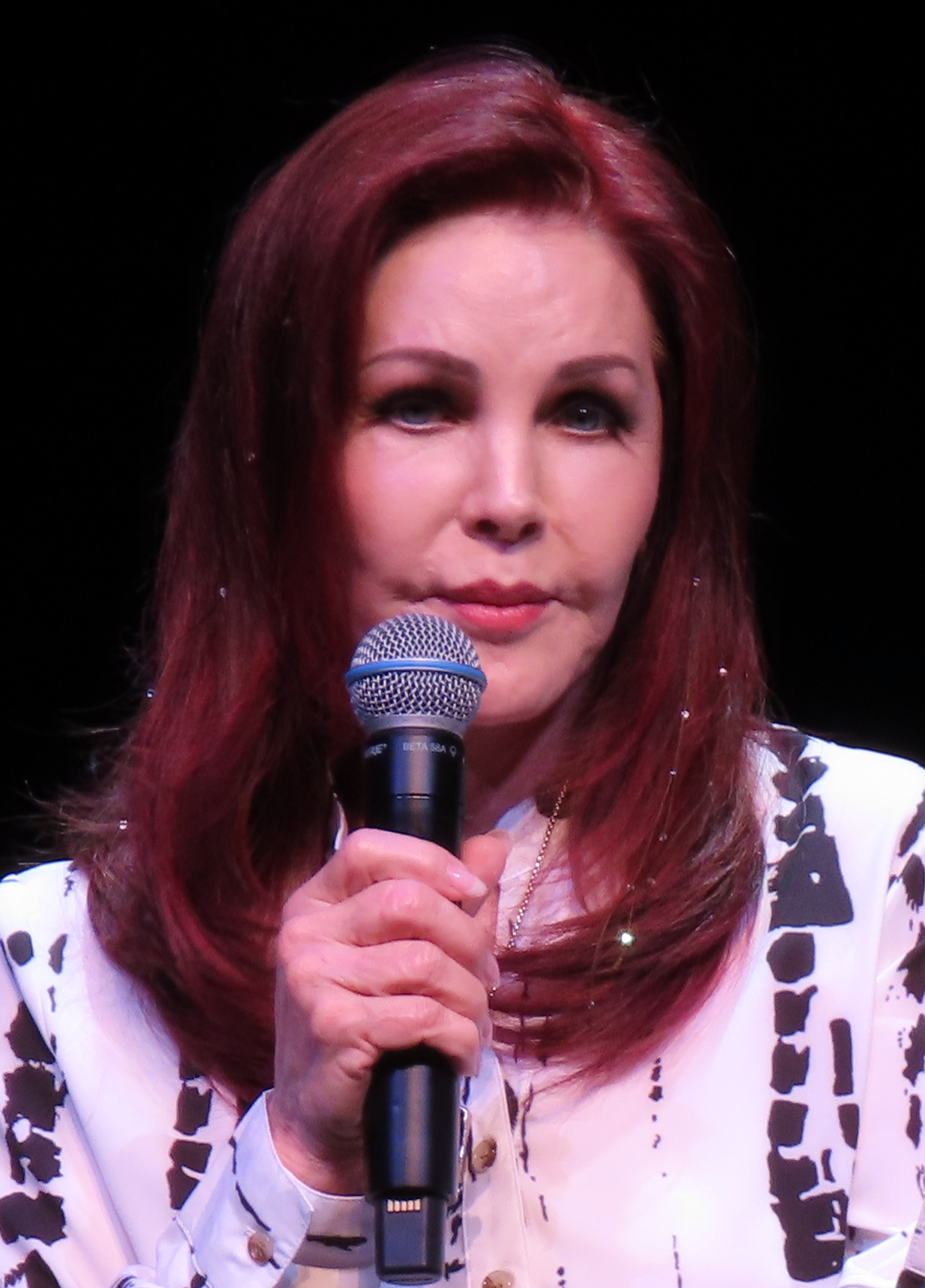
6. **She Says Robert Kardashian Wanted to Marry, and Kim Connected Them Before He Died.**Priscilla Presley’s relationship with Robert Kardashian was significant enough that it included discussions of marriage, as she reveals in her memoir. While Kardashian himself harbored the desire to “tie the knot,” Priscilla ultimately concluded that they simply “weren’t a good match.” This candid assessment sheds light on her decision-making process in her post-Elvis life, indicating a growing self-awareness and a commitment to finding a partner who truly aligned with her, rather than simply settling for another high-profile relationship.
Years later, Robert Kardashian’s life took a dramatic turn when he defended O.J. Simpson in his sensational murder trial. Priscilla reflects on the profound toll this experience took on him, believing it was “crushing for the famed attorney.” She posits that “The realization that his friend had committed the murders nearly destroyed him,” offering a deeply empathetic perspective on the personal anguish Kardashian endured during one of the most publicized legal battles of its time. This shows her continued care and understanding of his character even after their romantic relationship ended.
Their connection, though not culminating in marriage, remained a meaningful part of her life. Decades after their romance, as Robert Kardashian lay in the hospital, succumbing to esophageal cancer in 2003, a touching moment of reconciliation occurred. Priscilla reveals that it was Kim Kardashian, Robert’s daughter, who facilitated their final conversation. This gesture allowed for a poignant goodbye, closing a chapter in Priscilla’s life with warmth and mutual respect.
“Robert and I had one last conversation before he died,” Priscilla writes, reflecting on his character. She affectionately remembers him as “the kindest of men, and I remember him with great affection.” This final farewell underscores the lasting positive impression Robert Kardashian left on Priscilla, a testament to the genuine bond they shared, despite their differing paths and ultimate decision not to marry. It’s a reminder that even relationships that don’t last forever can leave behind a legacy of kindness and connection.
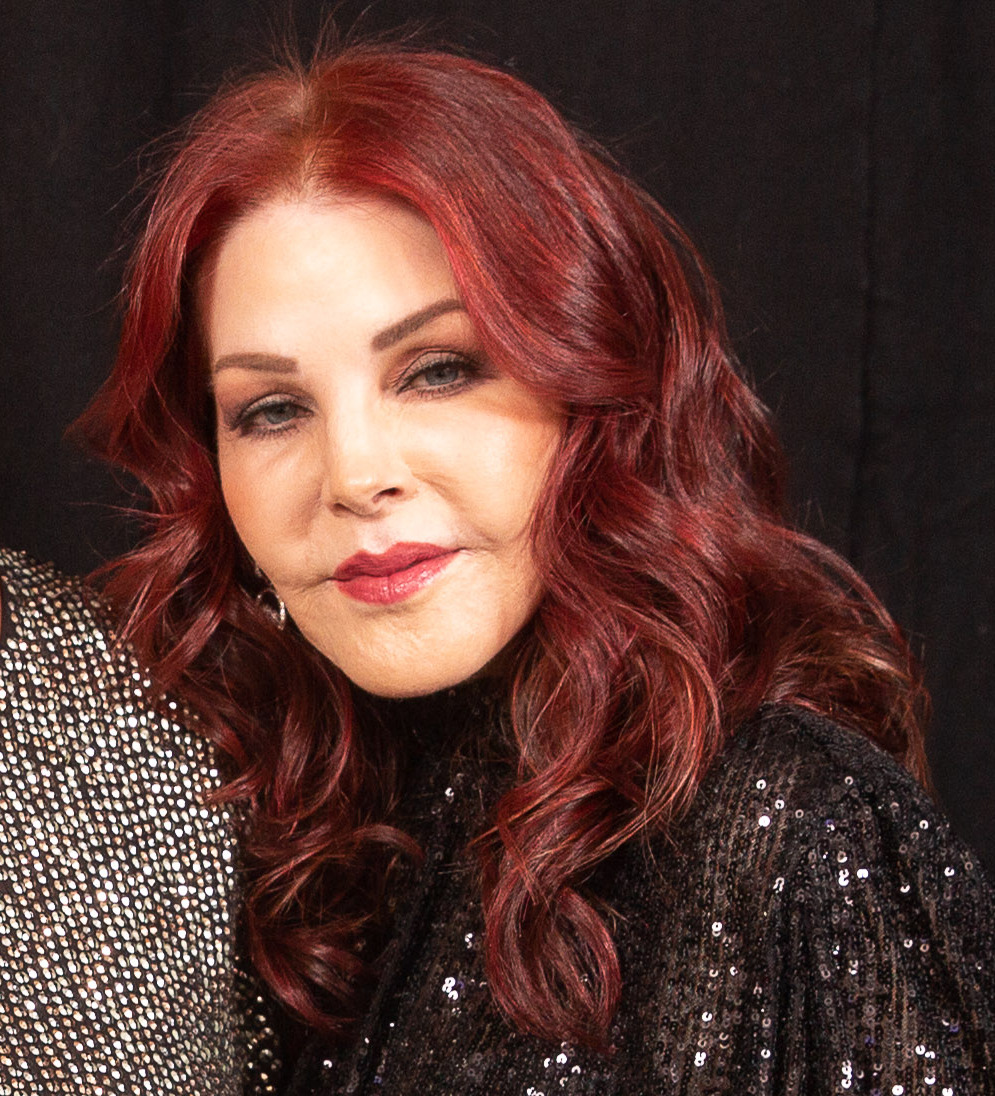
7. **She Considered Michael Jackson a “Manipulative Man.”**Priscilla Presley harbored strong reservations when her daughter, Lisa Marie, secretly married Michael Jackson on May 26, 1994. Far from being pleased, Priscilla admits she was “appalled” by the union. Her deep concern stemmed from a belief that Jackson, who was a decade older than Lisa Marie and a fervent admirer of Elvis, had ulterior motives beyond genuine affection for her daughter. This perception painted a much darker picture of the King of Pop’s intentions.
Priscilla candidly expresses her conviction that Michael Jackson was primarily using Lisa Marie for strategic public relations. At the time of their marriage, Jackson was battling serious allegations of child molestation, and Priscilla believed he saw Lisa Marie as a means to deflect negative attention. “I knew in my bones that Michael wasn’t marrying Lisa Marie; he was marrying the Presley dynasty. The King of Pop was allying himself with the King of Rock & Roll,” she writes, articulating her profound skepticism about the sincerity of his love.
Her assessment of Michael Jackson’s character was unflinching. “I didn’t believe he loved her,” Priscilla states, unequivocally expressing her distrust. She went further, describing him as “a manipulative man, and I think he had his sights set on her long before she realized it.” This strong conviction highlights her protective maternal instincts and her intimate understanding of the complexities and pressures that come with marrying into such a prominent, iconic family.
Priscilla’s concerns were not merely speculative; they were rooted in her own experiences within the amplified world of celebrity and her innate understanding of how fame can distort personal relationships. Her perspective offers a crucial counter-narrative to the public fascination with the Jackson-Presley union, revealing the private anguish and suspicion felt by a mother who saw her daughter potentially being used. This insight casts a stark light on the often-hidden realities behind the glossy headlines of celebrity romances.

8. **Priscilla Counseled Lisa Marie Against Having a Baby with Jackson.**The complexities of Lisa Marie’s relationship with Michael Jackson didn’t end with Priscilla’s suspicions about his motives for marriage. Priscilla reveals an even more personal and protective maternal instinct at play when her daughter confided a deeply significant desire of Jackson’s: he wanted them to have a child. This was during a walk on a beach in Hawaii, a seemingly serene setting for such a weighty conversation, which immediately put Priscilla on high alert for her daughter’s well-being.
Priscilla’s response was swift and unequivocal. She immediately opposed the idea, candidly recommending her daughter take things slow, as she writes in her memoir. Her apprehension wasn’t born of a dislike for children, but a profound distrust of Michael Jackson’s intentions. She strongly believed a child would serve as “proof of virility” for Jackson, a strategic move to bolster his public image amidst serious allegations of child molestation.
This insight showcases Priscilla’s acute understanding of the often-harsh realities of celebrity life and the ways in which personal relationships can be manipulated for public perception. Her protective stance was rooted in her own experiences within the amplified world of fame, and her innate ability to discern genuine affection from calculated actions, making her counsel to Lisa Marie a poignant moment of maternal guidance.
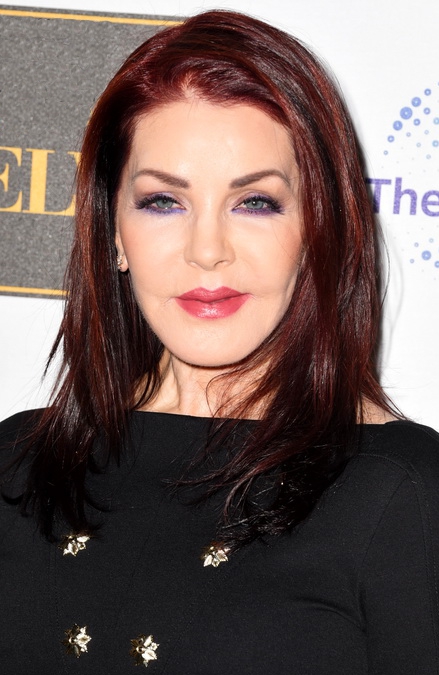
9. **Priscilla’s Enduring Love for Elvis.**Despite the complexities and heartaches that marked her marriage to Elvis Presley, Priscilla’s memoir, “Softly, as I Leave You,” makes one thing abundantly clear: her love for the King of Rock & Roll remains profound and enduring, even decades after his passing. He died in 1977, just four years after their divorce, yet nearly 50 years later, he is still firmly rooted in her heart. This unwavering affection speaks volumes about the depth of their connection.
Priscilla herself captures this sentiment with a touching reverence: “I loved Elvis deeply,” she writes, “and sixty years later, I see him through a tender haze.” This particular phrasing beautifully conveys a perspective softened by time and cherished memories, acknowledging the difficulties without overshadowing the profound bond they shared. It’s a love that, for her, transcends the public narrative and penetrates to the core of their personal relationship.
She further emphasizes the singular nature of their bond, stating that their love for each other was “rare and extraordinary .… I have never felt anything remotely like it since.” This poignant reflection underscores that while she moved on and had other romances, none ever reached the same intensity or significance as her connection with Elvis. It’s a testament to a love that, despite its challenges and eventual end, defined a significant part of her life and soul.
Read more about: Elvis’s Iconic Jets: A High-Flying Legacy, Then & Now
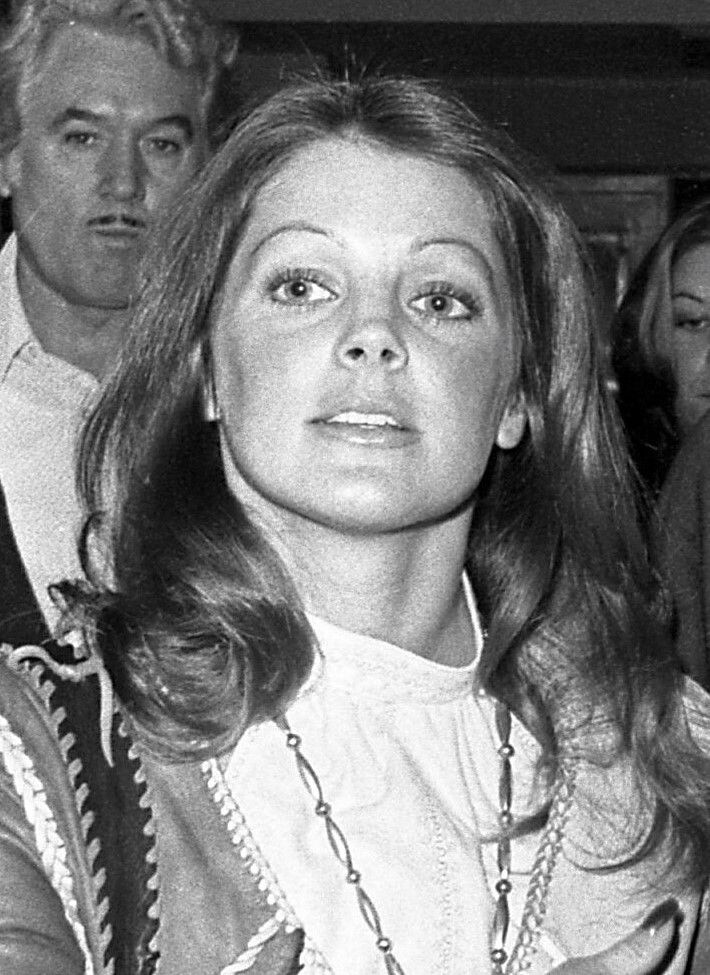
10. **Forging a New Path: Life Post-Divorce and a Surprising Career.**After her divorce from Elvis in 1972, Priscilla Presley embarked on a courageous journey to forge an independent life, stepping out of the shadow of her iconic husband. This period was crucial for her personal growth, as she sought to define herself beyond being “Mrs. Presley.” It marked a profound shift from the Graceland bubble, where her existence had been largely dictated by Elvis’s needs and desires, to a path of self-discovery and new endeavors.
One of the most notable aspects of her post-Elvis life was her unexpected foray into acting. Priscilla transitioned into a successful career, gracing both television and the big screen. Her roles in the hit series *Dallas* and the beloved *Naked Gun* franchise showcased her versatility and undeniable screen presence, proving she was far more than just Elvis’s former wife. These achievements were significant steps in establishing her own identity and career.
While she did have other romances after Elvis, Priscilla candidly reflects on the unique challenge they presented. “But how could a regular guy ever compare to the King?” she muses in her memoir. This question encapsulates the immense shadow Elvis cast over her subsequent relationships, underscoring that the love she shared with him was indeed “rare and extraordinary,” setting an almost impossible standard for anyone who followed.
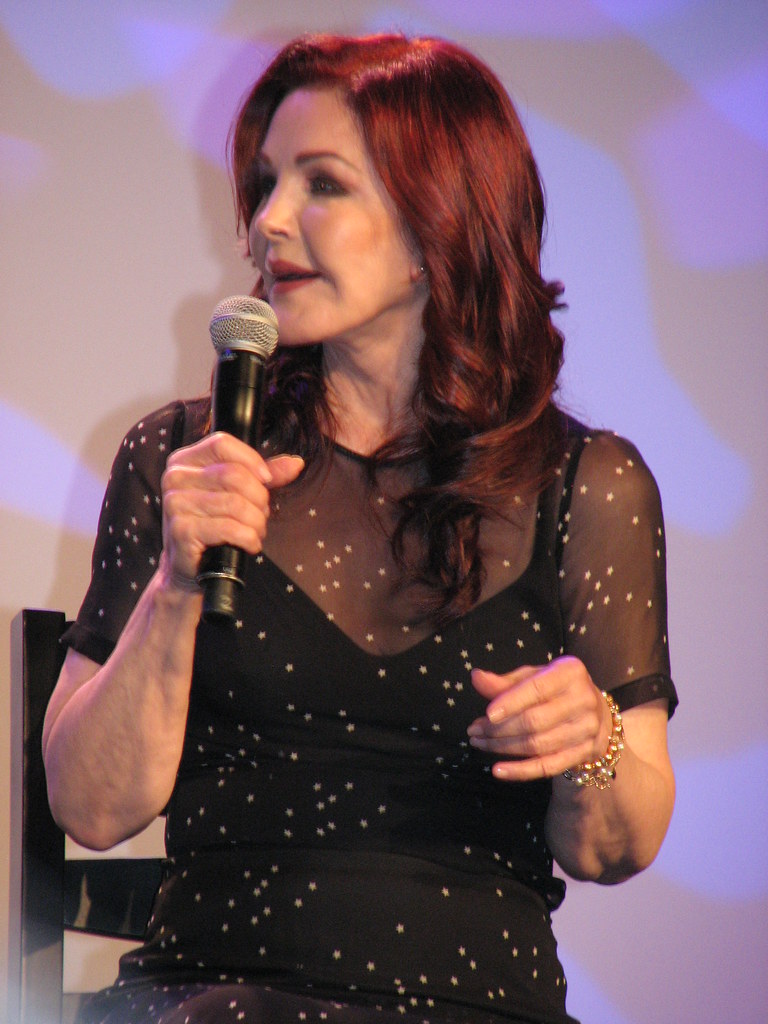
11. **Sofia Coppola’s ‘Priscilla’: A New Cinematic Lens.**Priscilla Presley’s remarkable life story took on a new dimension with the release of Sofia Coppola’s 2023 biographical drama, *Priscilla*. This film, written, directed, and produced by Coppola, offered audiences a fresh and intimate look at her complicated romantic relationship with Elvis Presley. Based on Priscilla’s own 1985 memoir, *Elvis and Me*, the film promised a deep dive into her perspective, bringing her voice to the forefront in a powerful cinematic narrative.
Coppola’s motivation for adapting the memoir was deeply personal and aligned with her signature style of storytelling. She revealed, “I was just so interested in Priscilla’s story and her perspective on what it all felt like to grow up as a teenager in Graceland. She was going through all the stages of young womanhood in such an amplified world—kinda similar to Marie Antoinette.” This focus on the isolated female experience within gilded cages became a central theme of the film.
Crucially, Priscilla Presley herself served as an executive producer for the film, lending an invaluable layer of authenticity and insight to the project. Her involvement ensured that the narrative remained true to her experiences and emotions, allowing audiences to connect with her journey on a deeper, more personal level. This direct input was vital in crafting a film that felt both intimate and genuinely reflective of her truth.
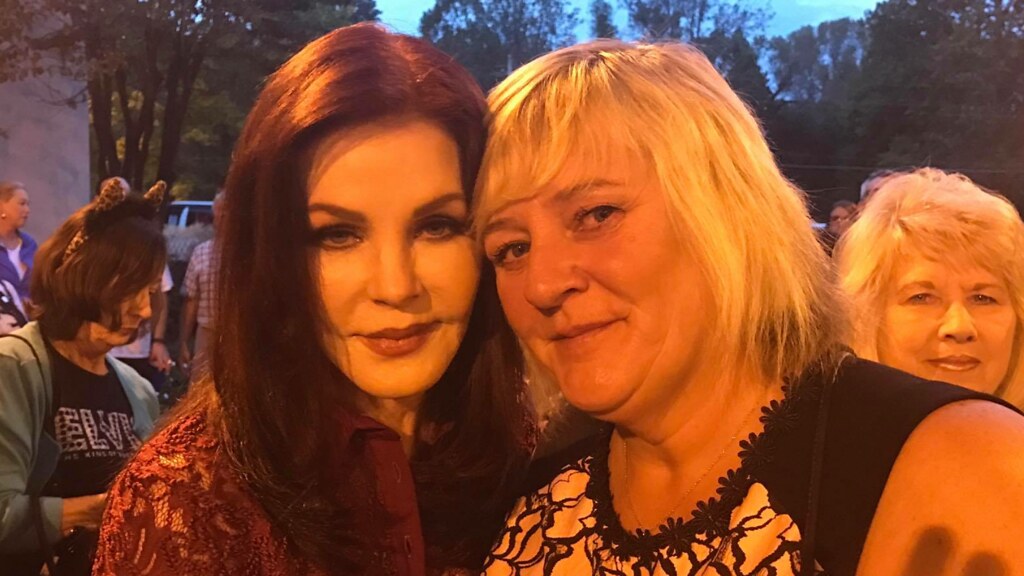
12. **Lisa Marie Presley’s Stark Critique of the Film.**Even before its theatrical release, Sofia Coppola’s film *Priscilla* stirred significant controversy, particularly from Lisa Marie Presley, Priscilla and Elvis’s daughter. Emails exchanged with Coppola on September 2, 2022, and later obtained by *Variety*, revealed Lisa Marie’s strong objections to the film’s portrayal of her iconic father. Her perspective, deeply rooted in her identity as his daughter, offered a stark counterpoint to the film’s narrative.
Lisa Marie’s critique was exceptionally direct and emotionally charged. In one message, she explicitly stated, “My father only comes across as a predator and manipulative. As his daughter, I don’t read this and see any of my father in this character. I don’t read this and see my mother’s perspective of my father. I read this and see your shockingly vengeful and contemptuous perspective and I don’t understand why?” These words underscored her profound disagreement with how Elvis was depicted.
Her powerful statements highlighted the inherent challenges of portraying complex historical figures and personal relationships on screen, especially when multiple, deeply emotional perspectives are involved. Lisa Marie’s objections illuminated the differing interpretations of Elvis’s character and the lasting impact his public and private persona had on his family, adding a poignant layer to the film’s reception and the public discourse surrounding it.
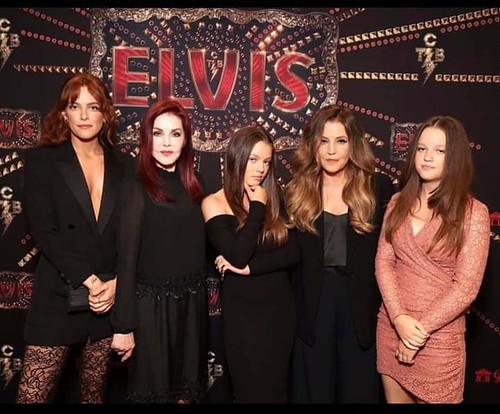
13. **Critical Acclaim and Thematic Depth of ‘Priscilla’.**Upon its premiere at the 80th Venice International Film Festival and subsequent wide release, Sofia Coppola’s *Priscilla* garnered generally positive reviews from critics, solidifying its place as a significant cinematic work. The film achieved a robust 84% positive rating on Rotten Tomatoes, based on 299 critics’ reviews, and a “generally favorable” score of 79 out of 100 on Metacritic, underscoring its critical success and broad appeal.
Critics widely praised the casting choices, particularly Cailee Spaeny as Priscilla and Jacob Elordi as Elvis. Many commentators noted how the actors effectively highlighted the vast power disparity between Priscilla and Elvis, a crucial element in understanding their dynamic. This nuanced portrayal allowed the film to delve into the complexities of their relationship with sensitivity and precision, drawing viewers into Priscilla’s emotional world.
Beyond the performances, the film was commended for its exploration of themes consistent with Coppola’s acclaimed body of work. Critics recognized her insightful examination of the “isolation of fame, femininity, and ‘privilege without power’.” This signature thematic depth resonated strongly, offering a poignant look at Priscilla’s experience of growing up in an “amplified world” while often feeling constrained and without agency.
Marlow Stern of *Rolling Stone* declared *Priscilla* “a transportive, heartbreaking journey into the dark heart of celebrity, and [is Coppola’s] finest film since Lost in Translation,” a high honor indeed. Anthony Lane of *The New Yorker* further added, “We need both movies, I would argue: last year’s frenzied act of worship and now this irreverent response, all the more potent for being so still and small,” contrasting it with Baz Luhrmann’s *Elvis* and highlighting its unique, understated power.
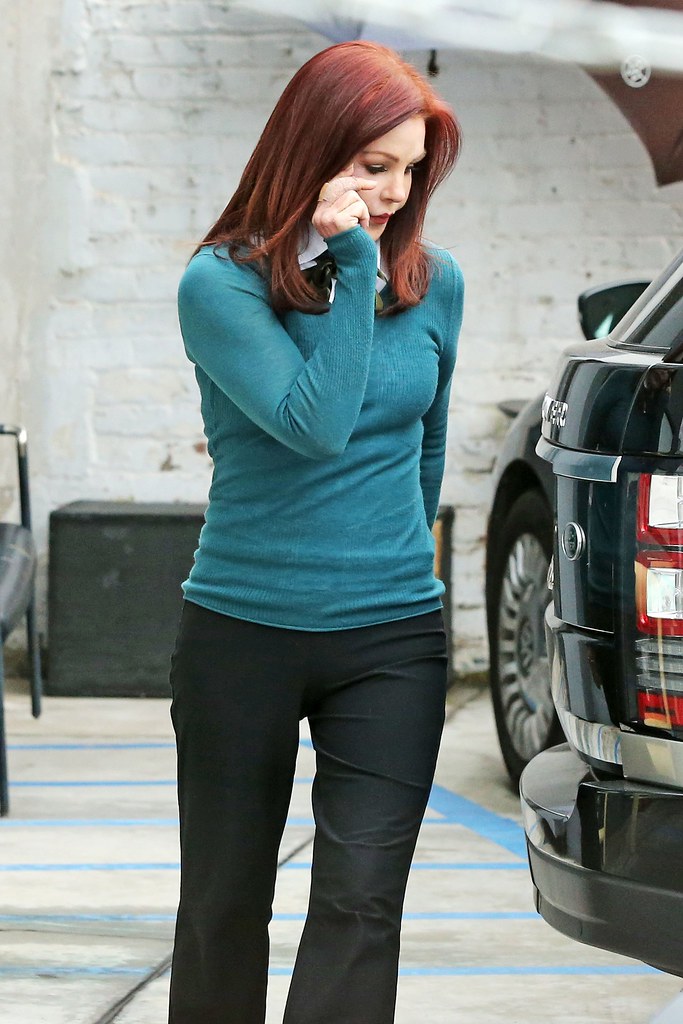
14. **Cailee Spaeny’s ‘Marvel’ in the Title Role.**Central to the critical success and emotional resonance of *Priscilla* was the phenomenal performance of Cailee Spaeny in the title role. Her portrayal of Priscilla Presley earned her widespread acclaim, including the prestigious Volpi Cup for Best Actress at the 80th Venice International Film Festival, and a well-deserved Best Actress nomination at the Golden Globe Awards, showcasing her talent on a global stage.
Spaeny’s ability to embody Priscilla across a significant age range, from a 14-year-old teenager to a 27-year-old woman, was consistently highlighted as a marvel. Ben Kenigsberg of *The New York Times* described her performance as “sensitive” and “protean,” capturing the subtle nuances of Priscilla’s evolving experiences. Marlow Stern further lauded her as “an absolute marvel, nailing Priscilla’s complicated mélange of emotions — the wide-eyed wonderment and youthful desire, the apprehension and fear.”
Her performance was particularly effective in conveying the often-unspoken emotions of a young woman navigating an extraordinary and challenging life. Spaeny brought an authentic vulnerability and strength to the role, allowing audiences to connect deeply with Priscilla’s journey of self-discovery amidst immense fame and personal sacrifice. Her nuanced portrayal became the heart of the film, making Priscilla’s story profoundly relatable.
Priscilla Presley’s journey, as laid bare in her memoir and beautifully reinterpreted on screen, is a testament to resilience, enduring love, and the quiet strength of a woman who lived a life under the brightest of spotlights. From the private anxieties of Graceland to forging her own path in Hollywood, and finally witnessing her story told through Sofia Coppola’s empathetic lens, Priscilla has given us an unparalleled glimpse into the human experience behind the legendary facade. Her candid revelations, at once heartbreaking and inspiring, remind us that even amidst extraordinary circumstances, the quest for authenticity and connection remains universally human.


